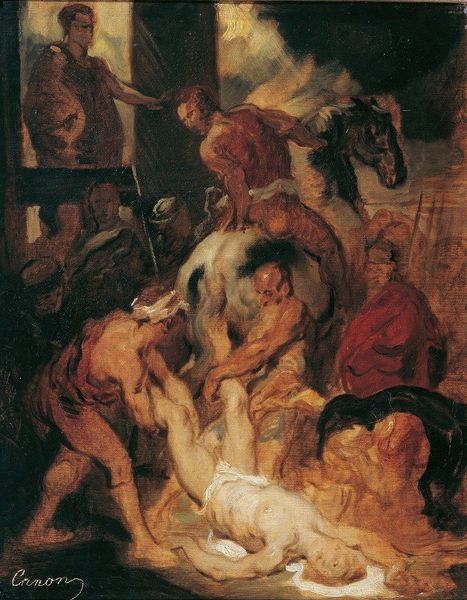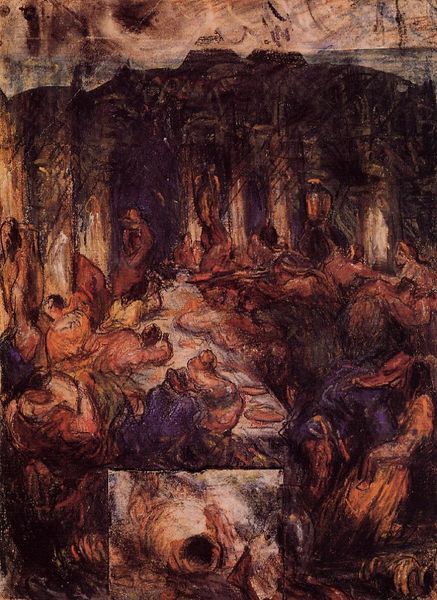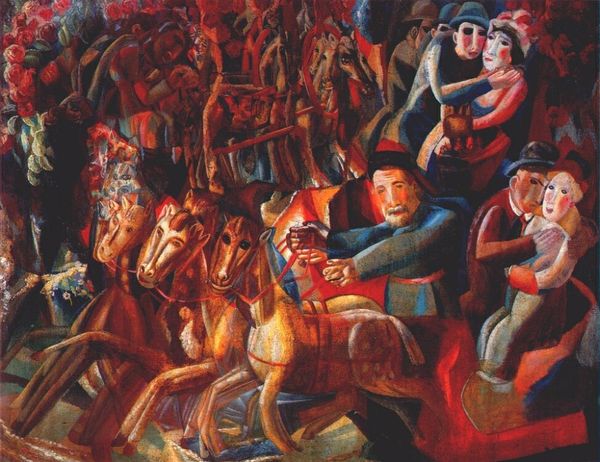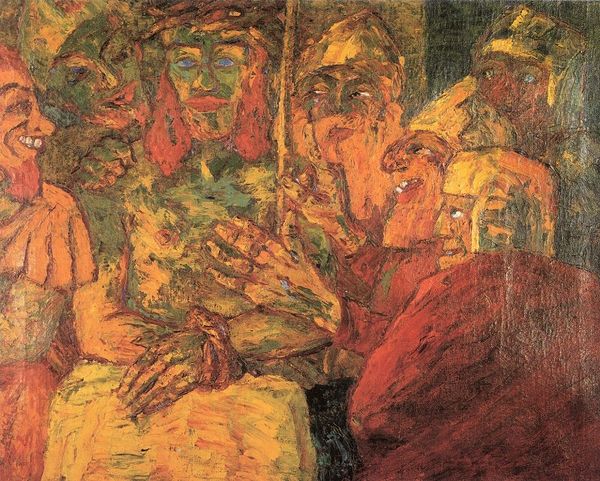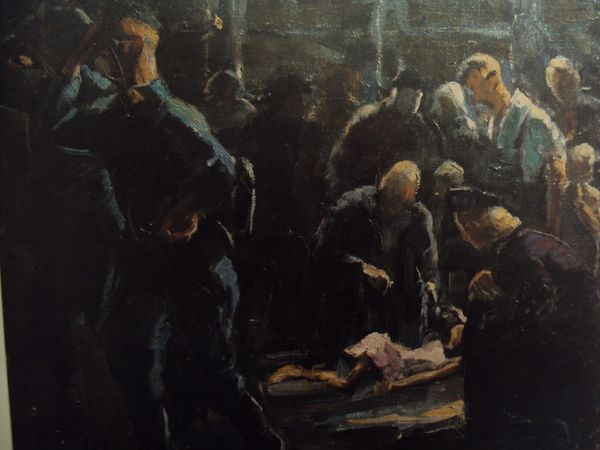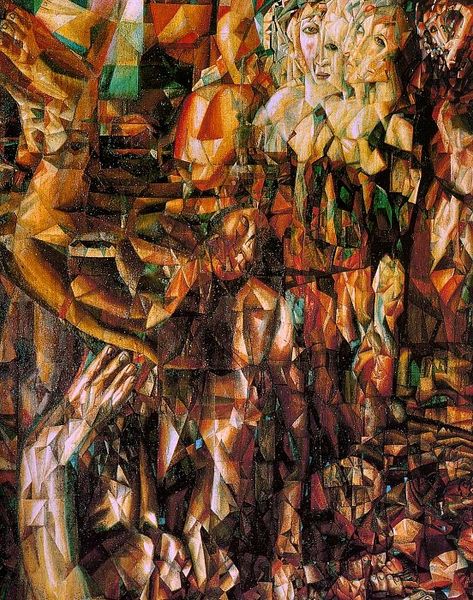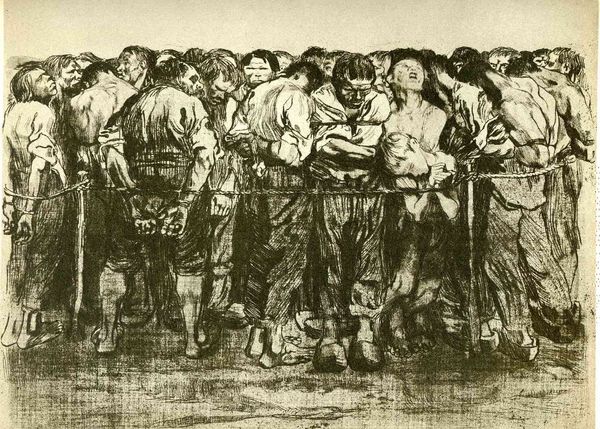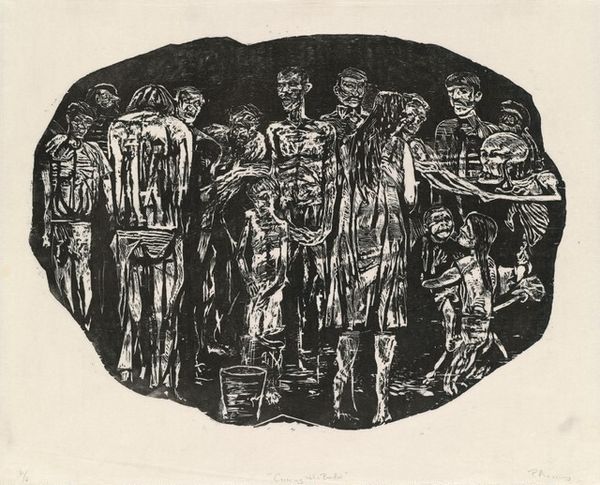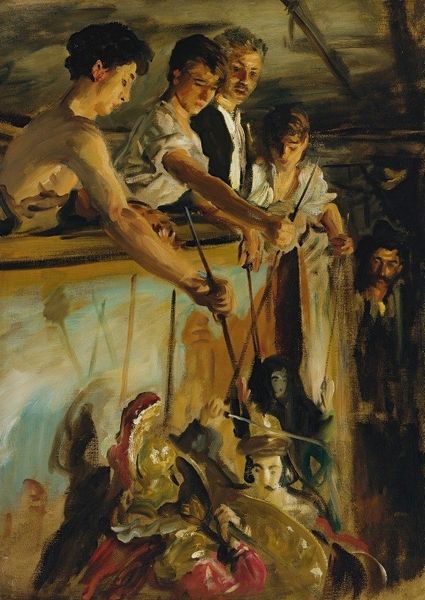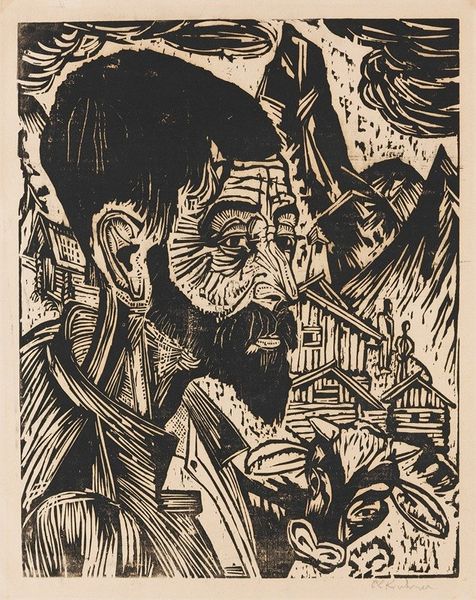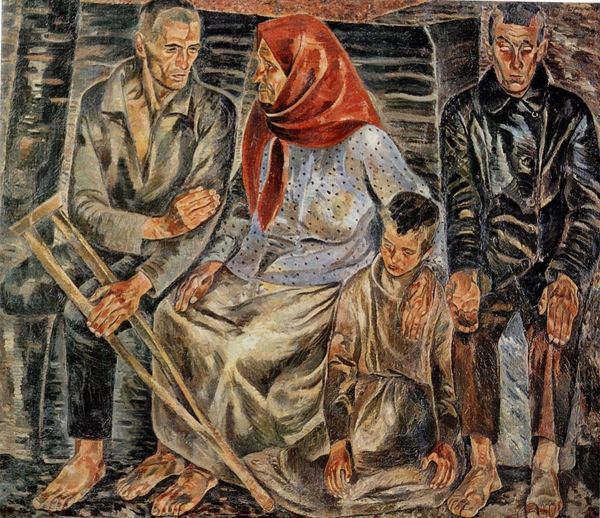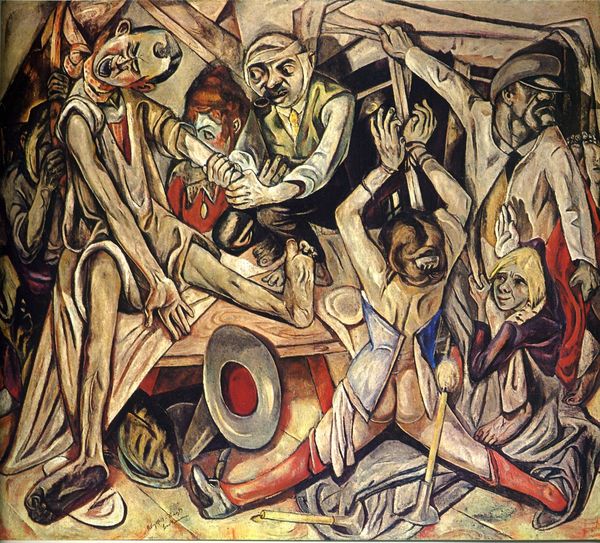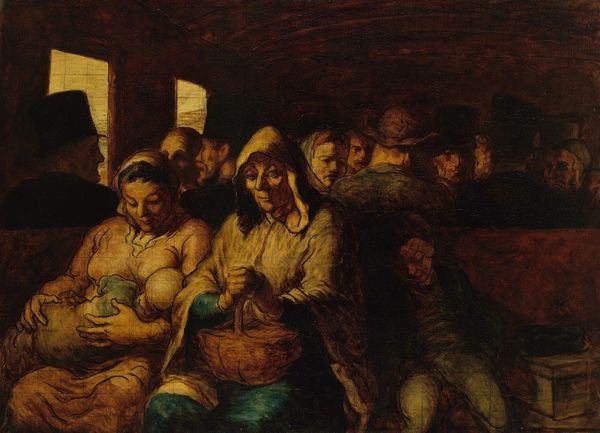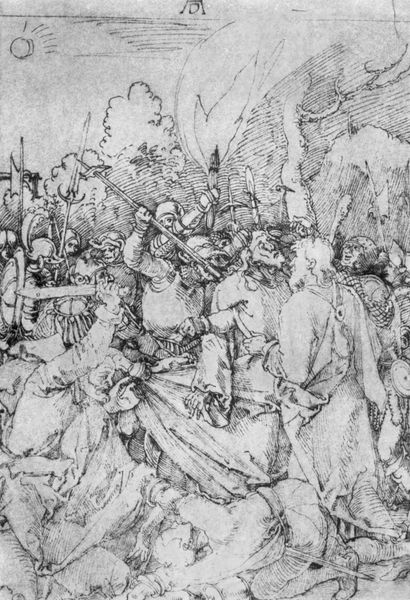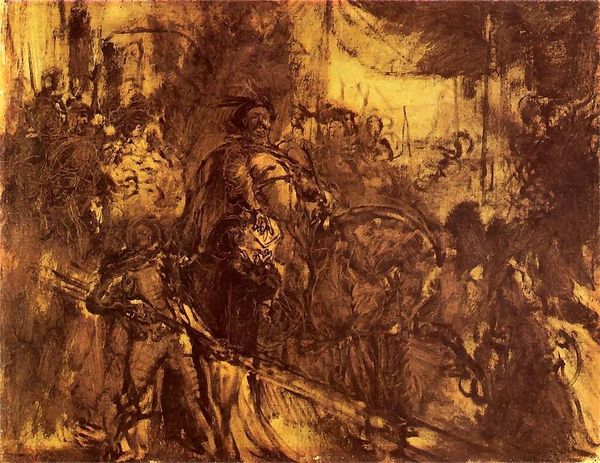
painting, oil-paint
#
portrait
#
painting
#
oil-paint
#
charcoal art
#
oil painting
#
expressionism
#
genre-painting
#
modernism
Copyright: Public domain US
Curator: Here we have Max Oppenheimer’s “Operation,” painted in 1912, rendered in oil. What strikes you immediately about this tableau? Editor: The sheer visceral quality of it. The frantic brushstrokes and the muted palette – it evokes a sense of hurried, desperate labor. Almost oppressive, seeing so many figures crammed into the frame. Curator: It’s a very intimate, if unsettling, portrayal of a surgical theatre. Note how Oppenheimer employs an Expressionist style to convey the intensity of the moment, foregoing precise anatomical detail for an emotional reading of the event. Editor: Exactly. And look at the almost brutal materiality of the paint. It isn't trying to disguise itself; it’s thick and textural, mirroring the messiness of the operation itself. How does the making itself contribute to our understanding of medicine at this time? Curator: In the broader scope, one sees it as a commentary on early 20th century society and humanity's fragile state amid progress, and perhaps its potential inhumanity. These doctors are less healing saviors and more functionaries caught in an inexorable process. Think of how surgical theaters functioned not just as places of medical intervention, but also of teaching and public observation. The visual dynamics can reflect the medical field's shifting status within society, becoming both savior and symbol of broader anxieties during times of major scientific transformation. Editor: Right, you’re drawn to this piece through social structures! I find the visual language to be interesting - where you have this supposed high-minded profession rendered so crudely – really destabilizing the role of doctors in society, perhaps indicting how advancements are approached or executed at the expense of human lives or dignity. Curator: Well, Max Oppenheimer clearly succeeded in giving us something to ponder about the convergence of humanity and profession. Editor: Absolutely, the material conditions of creating it and its subject provide rich insight to cultural conditions then and now.
Comments
No comments
Be the first to comment and join the conversation on the ultimate creative platform.
